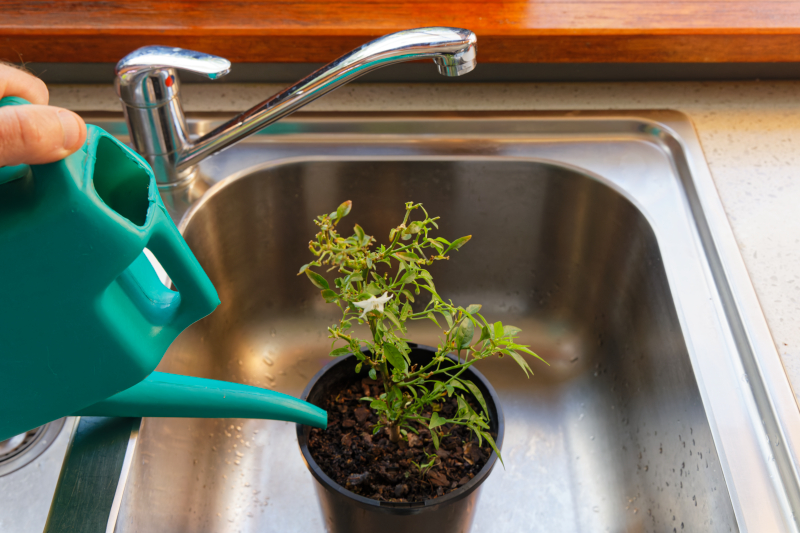Dechlorinating Household Tap Water
When it comes to maintaining a thriving worm farm, the details matter. One of the most overlooked aspects is the water you use. Did you know that household tap water, often treated with chlorine or chloramines, can harm your worms? Let’s explore why dechlorinating water is essential and how to do it effectively.
Why Dechlorinating Water Matters
Understanding Chlorine and Chloramines
Tap water is treated with chlorine or chloramines to kill harmful bacteria. While this is great for human consumption, it’s not ideal for your worm farm. Chlorine evaporates over time, but chloramines are more stable and harder to remove.
The Impact of Chlorine on Worms
Chlorine and chloramines can disrupt the microbial ecosystem in your worm bin. These microbes break down organic matter, making it easier for worms to digest. Without them, your worms’ health and productivity could decline.
Methods to Dechlorinate Tap Water
Letting Water Sit Out
One of the simplest methods is to let your tap water sit out in an open container.
How Long Should It Sit?
Leave the water exposed to air for 24-48 hours. This allows chlorine to dissipate naturally. However, this method doesn’t work for chloramines.
Tips to Speed Up the Process
Increase the surface area by using a wide container. Stirring the water occasionally can also help speed up chlorine evaporation.
Using Vitamin C Tablets
If you’re looking for a quicker option for dechlorinating household tap water, Vitamin C tablets are a fantastic choice.
Why Vitamin C Works
Vitamin C neutralizes both chlorine and chloramines. It’s safe, effective, and readily available.
Steps to Use Vitamin C Tablets
- Dissolve one Vitamin C tablet in a bucket of water.
- Stir until fully dissolved.
- Wait a few minutes before using the water in your worm farm.
Boiling Water
Boiling is another straightforward method for dechlorinating household tap water.
Efficiency of This Method
Boiling water for 15-20 minutes will effectively remove chlorine. However, it’s less effective for chloramines.
Practical Considerations
Boiling large quantities of water can be time-consuming and energy-intensive. It’s better suited for small-scale worm farms.
Activated Carbon Filters
For a more advanced solution, consider using activated carbon filters.
How They Work
These filters remove chlorine and chloramines by adsorbing them as water passes through.
Choosing the Right Filter
Look for filters labelled as effective against chloramines. Regularly replace the filter to maintain its efficiency.

Best Practices for Watering Your Worm Farm
Testing Water Quality
Before using any water, test it to ensure it’s free of chlorine and chloramines. Simple test kits are available online.
Ensuring Proper Moisture Levels
Your worm bin should feel like a damp sponge. Overly wet conditions can suffocate your worms, while dry conditions can dehydrate them.
Signs Your Worms Are Thriving
Healthy worms are active, reproduce regularly, and break down food scraps efficiently. If you notice sluggish worms, it’s time to reassess your water and overall setup.
Common Mistakes to Avoid
Using Untreated Water
Skipping the dechlorination step can harm your worms and disrupt their habitat.
Overwatering Your Worm Bin
Too much water can create an anaerobic environment, leading to foul smells and stressed worms.
Ignoring the Worm Farm’s Needs
Neglecting regular checks on moisture levels and water quality can lead to long-term issues.
Conclusion
Dechlorinating household tap water is a simple yet vital step in maintaining a healthy worm farm. By using methods like letting water sit out, Vitamin C tablets, boiling, or activated carbon filters, you can ensure your worms thrive. Remember, happy worms mean a productive worm farm!
FAQs
Can I use rainwater instead of tap water for my worm farm?
Yes, rainwater is an excellent alternative as it’s usually free from chlorine and chloramines.
How often should I water my worm farm?
Water only when necessary to maintain a damp sponge-like consistency in the bedding.
Is it okay to use distilled water for worms?
Yes, distilled water is safe, but it lacks minerals, so use it sparingly.
What are the signs that my worms are stressed?
Sluggish movement, clumping together, or trying to escape are common signs of stress.
Can I dechlorinate water using baking soda?
No, baking soda doesn’t remove chlorine or chloramines. Stick to proven methods like Vitamin C or activated carbon filters.




